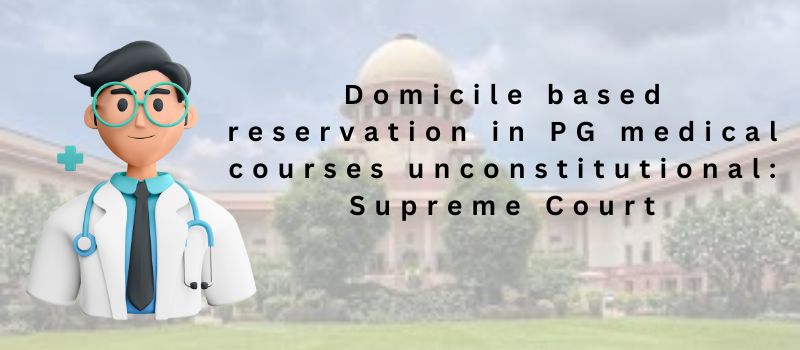State Government Challenges SC Ruling on PG Medical Seat Quota
Chennai: The Tamil Nadu government has decided to file a review petition in the Supreme Court against its recent order that declared the domicile-based reservation for postgraduate (PG) medical seats unconstitutional. Health Minister Ma Subramanian announced this move on Thursday, stating that the decision is being made under the direction of Chief Minister M.K. Stalin.
State’s Strong Opposition to the Order
Addressing the media at the Secretariat, Subramanian emphasized that consultations with medical experts are ongoing to support the legal challenge. Tamil Nadu already surrenders 15% of undergraduate (UG) medical seats and 50% of PG medical seats to the All India Quota (AIQ). The state government believes that the court’s ruling will significantly impact Tamil Nadu’s existing 69% reservation policy, which has long been a cornerstone of social justice in the state.
“The Supreme Court order will have a huge impact not only on the reservation system but also on minority institutions. Tamil Nadu has heavily invested in the development of medical education infrastructure. Forcing us to surrender 100% of PG medical seats to the Union government is unfair,” Subramanian stated.
Impact on Social Justice and Reservation Policies
Tamil Nadu has historically advocated for reservation policies to ensure equitable access to education for all sections of society. The minister asserted that if the ruling is enforced, it would undermine the state’s rights and disrupt internal seat allocation mechanisms.
“Reservation has always been an essential tool for achieving social justice in Tamil Nadu. If this judgment is implemented, it will weaken our ability to provide opportunities to deserving candidates from the state,” he added.
Tamil Nadu’s Dominance in PG Medical Education
Tamil Nadu has the highest number of PG medical seats in the country, including diploma courses. The state offers a total of 2,294 seats across MD, MS, and diploma programs. While the ruling will not impact this year’s PG medical admissions, as the second round of counseling has already been completed and the third round is about to commence, the new regulations could come into effect from next year.
Government’s Commitment to Protecting State Rights
To prevent any adverse impact on medical aspirants in the state, the Tamil Nadu government is determined to take all necessary legal steps. “We will take every possible measure to safeguard the rights of our students before this order is implemented,” Subramanian assured.
With Tamil Nadu historically leading the charge in reservation and medical education policies, the legal battle over domicile-based quotas is set to be a crucial one. The outcome of the review petition in the Supreme Court will determine whether the state can retain its control over PG medical seat allocation or will have to conform to a centralized system.
